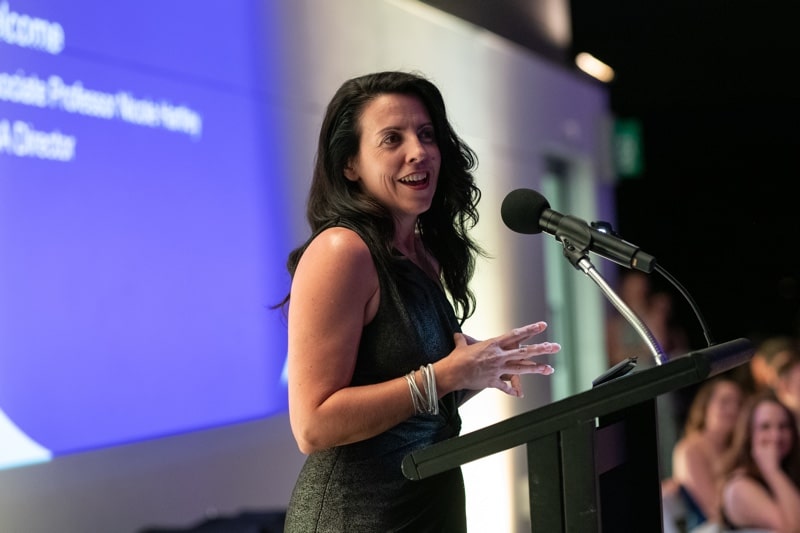
Business leaders are responding fast to Australia’s version of the pandemic-induced ‘Great Resignation’ and initiating creative solutions to retain talent at their companies.
The term ‘Great Resignation’ was coined in late 2020 to describe how millions of workers in the US were suffering burnout, re-evaluating work-life balance, quitting their jobs and seeking higher salaries.
Stephanie Elwin, Director of Government & Public Sector Consulting at professional services firm PwC, said Australian companies were now experiencing the impacts of the phenomenon as well.
“There have been four resignations from my fairly small team over the past few months alone,” Stephanie, a graduate of The University of Queensland (UQ) MBA program, said.
“The Great Resignation is absolutely a real thing, particularly in consulting. It’s probably more accurate to call it the Great Job Switch or the Great Reshuffle as it’s more about job movement than just leaving a job.
Stephanie said as a leader, she was committed to supporting her team’s needs.
“It’s about looking at how we can meet their needs as best we can around the entire employee value proposition,” she said.
“I try to link everything we do to purpose and meaning. That’s always been my style as a leader, and it’s something I feel strongly about.
“Purpose, autonomy, learning and mastering skills are really powerful pieces of the puzzle for people to remain happy and engaged at work.
“If they’re happy and engaged, they’re less likely to accept other offers or look elsewhere.”
Stephanie said the UQ MBA had proven to be an outstanding investment to overcome the challenge of talent retention.
“I think of myself before I completed the MBA and who I was as a leader and I barely recognise that person now,” she said. “I had a lot of raw skills, but I credit the UQ MBA with empowering me to take my career up a notch.”
UQ MBA Director Associate Professor Nicole Hartley said it was unclear whether the full effects of the Great Resignation would be felt in Australia.
“However, we’re certainly witnessing a ‘reshuffle’ with organisations desperate to hold onto their current talent as employees consider new opportunities,” Nicole said.
“Through the current anomalies in our workforce, resultant from the pandemic, we’re seeing tighter labour markets across sectors, which have spawned both challenges and opportunities.

“Workers across numerous sectors are increasingly looking at their pre-COVID work patterns and reassessing whether their current role or employer aligns with their purpose.”
Nicole said employees are now strongly focused on drivers of purpose and fit when deciding where to work. They look closely at an organisation’s social impact, culture and values as well as their pay, benefits, work conditions and holidays.
“Employers who will fare the best through the current workforce shakeup will be those that embed work-life balance policies and support the health and wellbeing of workers,” Nicole said.
“The workplace shifts are not just resultant of the move towards better-paying jobs but also the new emphasis on wellbeing – with employees looking for better benefits, work-life balance and a less toxic workplace culture.
“Employers should concentrate on retaining talent, examining and making changes to their internal policies and practices. Incentives such as higher compensation, greater flexibility in work, increased benefits as well as increased access to ongoing training and personal and professional development will be increasingly important to employees.
“Hence, there will be a need for firms to implement more creative solutions than a mere pay increase, with a focus on employee development, engagement and the establishment of meaningful workplaces.”
Nicole said those with an MBA can play a strategic role within the organisations they’re employed in by fostering team cohesion and employee engagement.
“UQ MBA graduates have access to cutting-edge knowledge and practice in leadership, HR and management, which can translate to the establishment of retention strategies that build engaged, productive, satisfied and healthy workforces,” Nicole said.
“They’re also more equipped to lead initiatives that result in better work cultures, centred on wellbeing and purpose to motivate and inspire others – and make them feel valued.
“Finally, MBA graduates also bring with them an understanding of the importance of investing in upskilling. They understand focusing on personal and professional employee development goes a long way to retaining staff.”
Learn more about how the UQ MBA will transform your leadership skills and accelerate your career at an Information Webinar on 4 May. Register now or apply before 31 May 2022.










